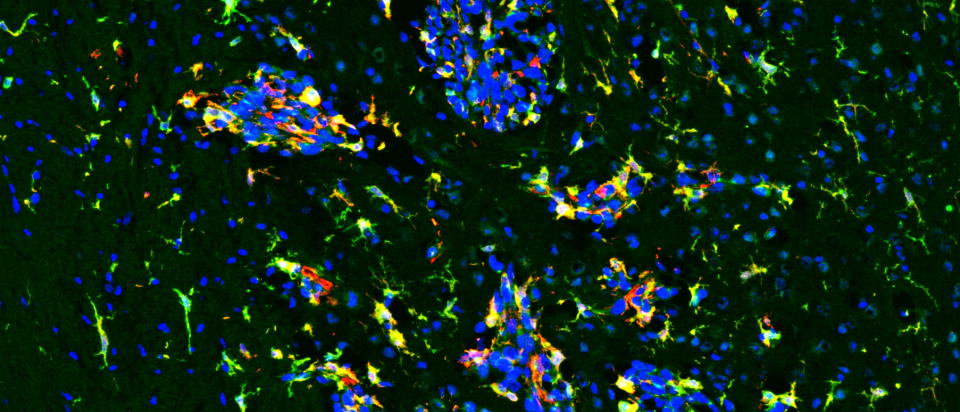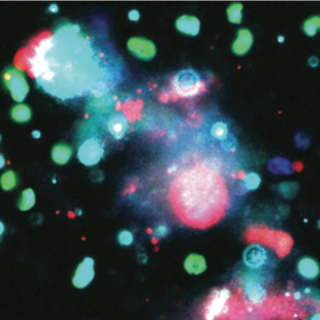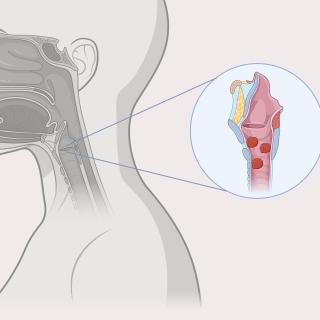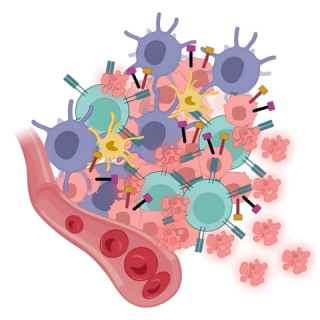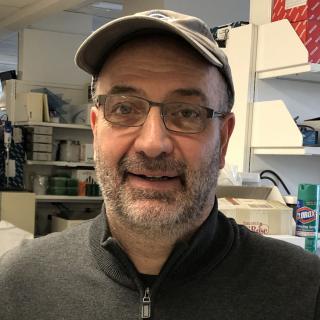News and Events
New Strategy Shows Promise Against Deadly Breast Cancer in the Brain
A new NIH study points to a promising strategy for treating aggressive breast cancer that spreads to the brain, a complication with few effective options. Learn how blocking a key brain cell survival pathway could open the door to future therapies.
Read MorePhase 1 clinical trial of rhIL-15 plus standard treatment for children and young adults with relapsed/refractory neuroblastoma
A clinical trial led by Rosa Nguyen, M.D., Ph.D., in the Pediatric Oncology Branch is researching whether adding an immunotherapy, rhIL-15, to three standard treatments will improve treatment results for neuroblastoma that has come back or not responded to treatment in children and young adults.
Read MorePhase 2 Trial Testing the Effectiveness of a Combination Targeted Therapy (ViPOR) for Patients With Relapsed and/or Refractory Aggressive B-cell Lymphoma
A clinical trial led by Christopher J. Melani, M.D., Associate Research Physician in the Lymphoid Malignancies Branch is testing the effectiveness of a combination targeted therapy known as ViPOR for patients with relapsed and/or refractory aggressive B-cell lymphoma.
Read MoreProteins Released from the Nuclei of Dying Cancer Cells Promote Tumor Growth
Material released from dying cancer cells, known as tumor cell nuclear expulsion products (TuNEPs), contains specific proteins that promote the growth of neighboring cancer cells. Targeting these proteins could lead to new treatments that hinder cancer spread and improve patient outcomes.
Read MoreCCR Research Leads to FDA Approval of First Immunotherapy for Recurrent Respiratory Papillomatosis
The U.S. Food and Drug Administration has granted full market approval for Papzimeos (zopapogene imadenovec-drba), a groundbreaking non-replicating adenoviral vector-based immunotherapy designed for adult patients with recurrent respiratory papillomatosis (RRP).
Read MoreProtein makes cancer cells easier to destroy with immunotherapy
A protein called GCN1 can trigger a stress response inside cancer cells and simultaneously help them hide from the immune system. Research found these processes can be blocked by another protein called IMPACT, which could enhance immunotherapy’s ability to find and kill cancer cells.
Read MoreClinical trial researching immunotherapy for head and neck cancer
A clinical trial led by Charalampos Floudas, M.D., D.M.Sc., M.S., Associate Research Physician in the Center for Immuno-Oncology, is researching a combination immunotherapy for adults with head and neck squamous cell carcinoma.
Read MoreThree CCR researchers appointed as Senior Investigators
The CCR community congratulates Peng Jiang, Ph.D., Nirali N. Shah, M.D., M.H.Sc., and Ping Zhang, Ph.D., for recently being appointed as Senior Investigators in their respective labs and branches.
Read MoreClinical trial researching CAR T-cell therapy for rhabdomyosarcoma
A clinical trial led by Srivandana Akshintala, M.B.B.S., M.P.H., Assistant Research Physician in the Pediatric Oncology Branch, is researching CAR T-cell therapy for children and young adults with rhabdomyosarcoma.
Read MoreCelebrating CCR Careers: Stefan Ambs, Ph.D., M.P.H.
Stefan Ambs, Ph.D., M.P.H., is a molecular epidemiologist whose expertise is in prostate and breast cancer with a focus on cancer health disparities and risk factors that alter the tumor microenvironment. After almost 25 years at the NCI, he retired in May 2025.
Read MoreClinical trial researching drug therapy for solid tumors
A clinical trial led by Hoyoung M. Maeng, M.D., Associate Research Physician in the Center for Immuno-Oncology, is researching a drug therapy for adults with advanced solid tumors.
Read More